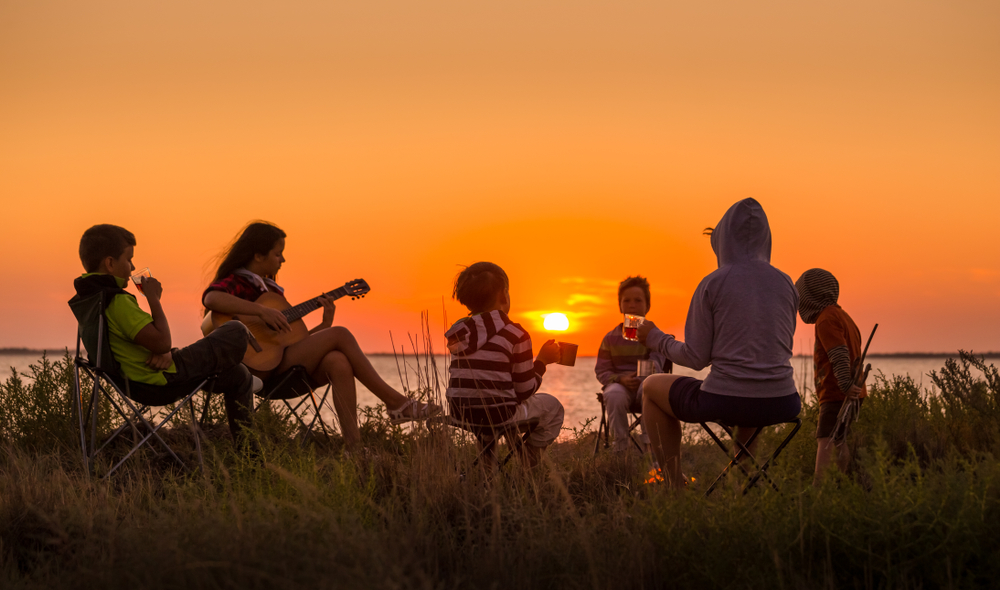As a parent, you know how challenging it is to keep your kids focused on one thing. Here are some tips for keeping them engaged in campfire stories.

Bedtime stories are, some would say, an essential part of growing up. Storytelling is a fun and engaging way to boost children’s imagination while teaching them some important life lessons. And, it’s not reserved just for bedtime! Stories can elevate any family activity, and it’s particularly fun when you tell them outdoors. Just imagine: the great outdoors, starry night, and a sparkling campfire. It’s an experience that your kids will cherish. So, this summer, consider opting for a family camping adventure and create meaningful memories with your young ones!
It’s okay if you’re not a natural-born storyteller — just follow our tips for keeping your kids engaged, and remember to have fun together!
1. Make it interactive: get them to help you
By asking your listeners to move around or play a specific character, your story can become an immersive experience for all. While you’re camping, you have even more possibilities to engage your audience! Just think about it — you’re telling some scary story, and, at some moment, “something” (like one of your little helpers) starts moving in the bushes… Incite your audience to carefully listen to the sound of nature, to touch and feel everything around them. Camp storytelling can be enjoyed with all senses.
2. Bring the story to life: use props
Sticks, leaves, flashlights, and everything within your reach can help you tell the story more convincingly. Think of your surroundings as a stage on which your story unfolds, so choose the topic accordingly and bring the story to life using props to encourage visualization. Sticks can be swords, and branches can be wings — possibilities are endless, and fun is guaranteed.

3. Storytelling is an art: be creative
If you’re not experienced with improvisation, practice telling your story a couple of times. The more you’re familiar with it, the more you’ll be comfortable making alterations off the top of the head. Pay attention to your audience’s reactions, and feel free to change up the story when you notice the audience becoming less interested.
4. Keep stories short and fun for kids
The general expert advice is to keep the length of the story the same as the kids’ age. If your kids are ten, you’ll have approximately ten minutes of their attention before they start to lose focus. Make sure that opening lines are like a hook that keeps your audience wanting to find out more, but don’t go overboard with the complexity of the story, so it becomes too hard to follow.
With these storytelling tips, we have no doubt that you and your kids will have a great time around the campfire. If you’re interested in what else you can do on a family vacation, check out 5 camping games to play with your kids.